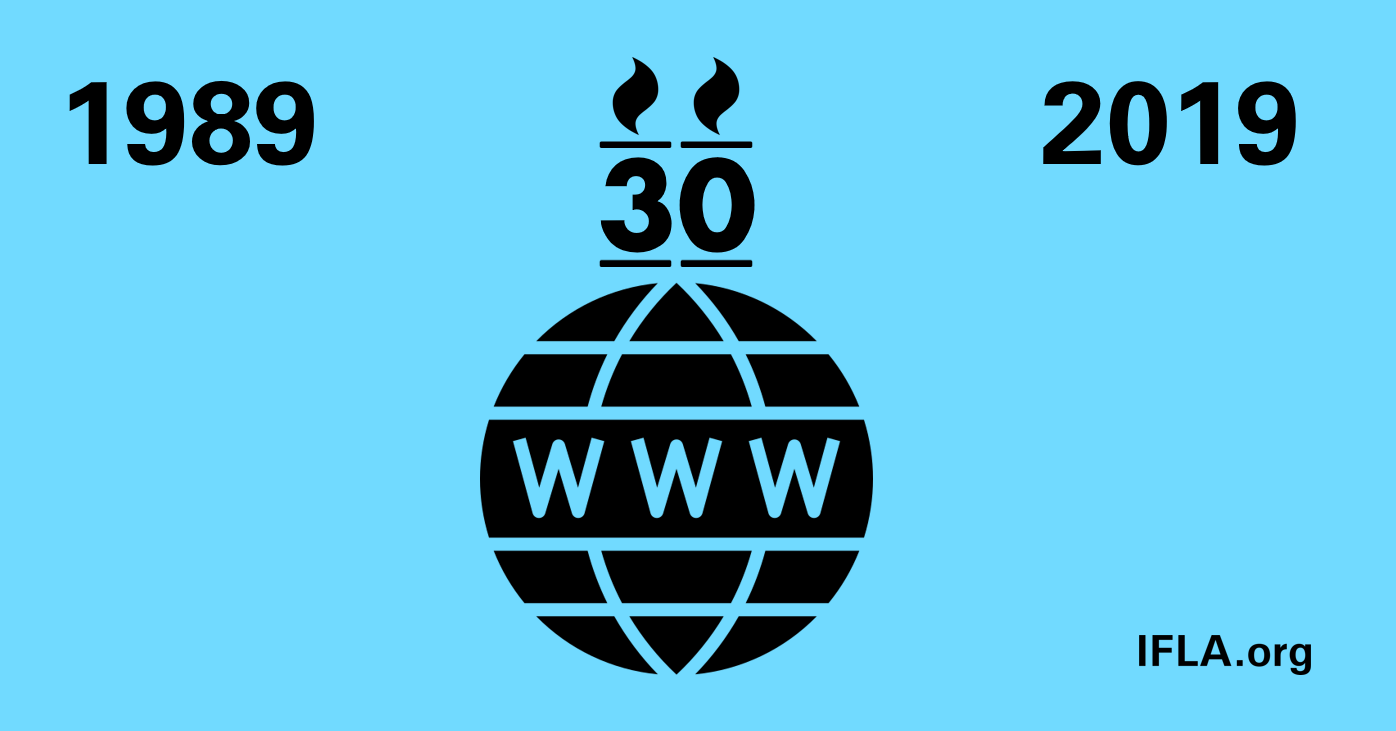
Today marks the 30th Anniversary of the World Wide Web. As opposed to the internet – physical networks of computers stretching to around half of the world’s population, the web is an ‘information space’ – a collection of documents and resources linked together by hyperlinks. It is what means that, in effect, computers speak the same language, or are interoperable.
The web gets plenty of criticism, thanks both to some of the content hosted there (hate speech, deliberate misinformation), as well as the way that it is used (hacking, crime, or manipulation of opinion). Indeed, Sir Tim Berners-Lee, the author of the paper which set out the concept of web, has himself warned of the need for action.
Nonetheless, the fact that the web is far from perfect does not mean that it has not brought major benefits, not least for libraries. This blog sets out five reasons why libraries in particular should celebrate its birthday.
1) Open Access: the emergence of the Open Access movement has a lot to do with appearance of the Web. The possibility to disseminate research at low marginal cost globally – almost impossible when working on paper – has not only transformed scholarly communication, but even the way science itself is performed. This is a clear benefit, allowing for an acceleration of progress in key areas for humanity. While much still needs to be done, it is clear that without the Web, we wouldn’t be where we are now.
2) Digital Libraries: the Web has been a game-change in terms of how libraries can give access to their own content. Digitising and uploading books, manuscripts and other documents has allowed libraries to reach far beyond their walls, and serve readers and researchers globally. Making such works available on the Web has provided an incentive for digitisation in the first place, created new possibilities to ‘reunify’ collections, and moved us towards a much stronger understanding of our shared heritage.
3) User-Generated Content: a key principle of the Web is that everyone can be both a consumer and a producer of content. This is a point that Sir Tim Berners-Lee underlines in his own article. These new possibilities have allowed libraries to offer new initiatives and services – creative writing, book reviews or online community archives for example. It has also allowed for a huge volume of new ideas, complementing traditional channels such as established publishers, meaning that library users are more likely to find content relevant to them.
4) Reaffirmation of the Value of Libraries: while pessimists have repeatedly predicted that the Web will make libraries obsolete, in reality there is little evidence for this. While it is true that certain traditional services have been taken over, there is a widely accepted need for support in developing the skills necessary to navigate available information. This is a natural strength of libraries, thanks both to the expertise and experience of their personnel, and the physical space they offer for meeting, socialising and learning.
5) Communication: interoperability between computer networks also means communication between people. The Web has had a huge impact on the work of organisations such as IFLA. From annual meetings as the only major occasion to come together, it is now possible to hold a permanent conversation, and engage members of the library field at any time, and anywhere where there is the possibility to connect. New opportunities to share, learn, and innovate are the result.
The birthday of the Web is clearly worth celebrating given all the progress it has allowed towards the goals of the library field. IFLA looks forwards to continued work to ensure that every library and every library user can connect and, in doing so, has the possibility to live a better life.
Read more about IFLA’s work on libraries and the information society, and in particular our guide to internet governance.